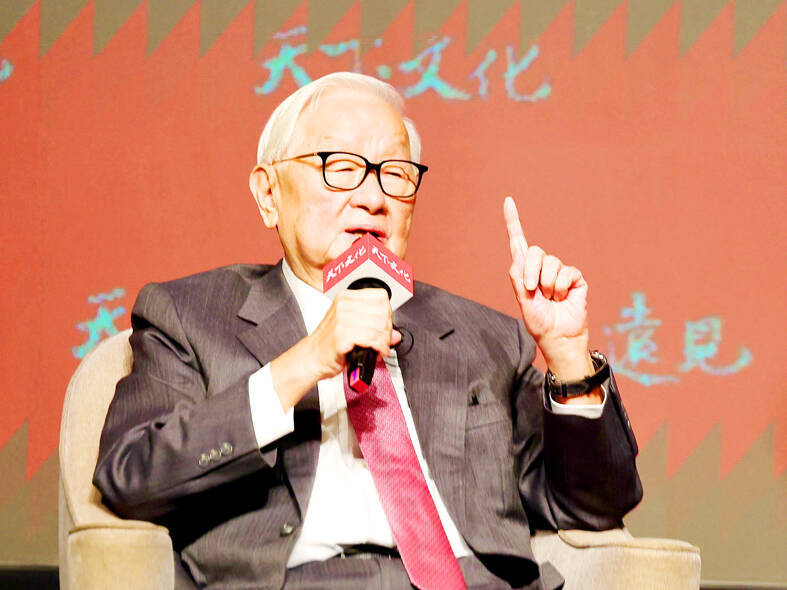《TAIPEI TIMES》 Intel needs a core business strategy: Morris Chang

Taiwan Semiconductor Manufacturing Co (TSMC) founder Morris Chang speaks at the launch of his autobiography in Taipei yesterday. Photo: CNA
By Lisa Wang / Staff reporter
Taiwan Semiconductor Manufacturing Co (TSMC, 台積電) founder Morris Chang (張忠謀) yesterday said that Intel Corp would find itself in the same predicament as it did four years ago if its board does not come up with a core business strategy.
Chang made the remarks in response to reporters’ questions about the ailing US chipmaker, once an archrival of TSMC, during a news conference in Taipei for the launch of the second volume of his autobiography.
Intel unexpectedly announced the immediate retirement of former chief executive officer Pat Gelsinger last week, ending his nearly four-year tenure and ending his attempts to revive the company’s past fortunes.
Intel hired Gelsinger when the US chip giant was looking for a new chief executive who could persuade the board with a strategy to save the chipmaker, Chang said.
Gelsinger’s eloquence made him Intel’s new leader at the time, he said.
Gelsinger’s strategy and ambition was to restart Intel’s old foundry business, so the company would design and make its own chips.
Intel now seems to be in the same difficult situation it was in four years ago with no chief executive and no strategy, Chang said.
It would be a formidable task for the US chipmaker to turn around its business if the board of directors do not put forward a strategy before picking a new chief executive, he said.
The problem would be less complicated if the company found a new chief executive to carry out the board’s strategy, he added.
Asked what was the main reason behind Gelsinger’s “forced” departure and Intel’s fall, Chang agreed with the idea that Intel missed opportunities and was left on the sidelines of the AI boom.
Gelsinger apparently preferred the foundry business over developing AI, although he also talked about Intel working on AI chips, Chang said.
Being a long-term customer and rival of TSMC, Chang said that Intel’s previous chief executives had been his friends, but not Gelsinger.
He seemed to be “hostile,” Chang said.
TSMC, the world’s biggest foundry service provider, outpaced and eventually overtook Intel to become the world leader in the most advanced technology when its 7-nanometer process technology entered volume production in 2018.
Asked why Nvidiia chief executive officer Jensen Huang (黃仁勳) became a candidate on TSMC’s shortlist to be a chief executive, Chang said Huang’s integrity, great vision and professionalism were the main reasons.
Huang turned down Chang’s offer because of his responsibility running the company he founded, Chang said.
Huang was only on the preliminary short list, he said.
Huang’s 7.5 percent stake in Nvidia could have been an obstacle for him taking the post, as TSMC would have asked him to sell the shareholding to avoid bias, Chang said, adding that he does not hold a major shareholding in any of TSMC’s customers.
新聞來源:TAIPEI TIMES











